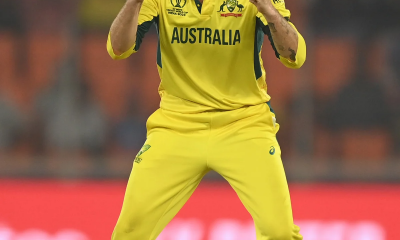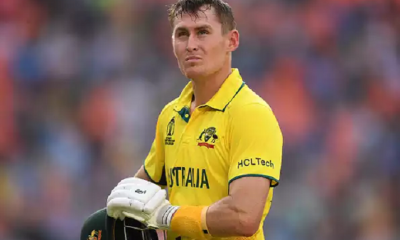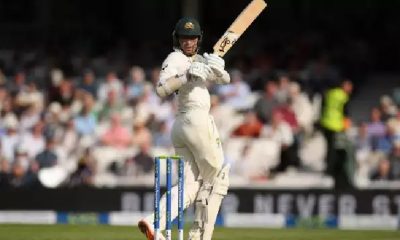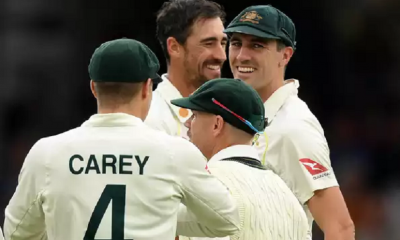Latest News
Mitchell Marsh, Mark Wood stand out on roller-coaster day

Mark Wood and Mitchell Marsh were the standout performers on a rollercoaster day one at Headingley, as England and Australia jousted for the ascendancy on a juicy Headingley pitch.
Latest News
Seifert, Allen fifties help New Zealand gallop to record-breaking win against UAE
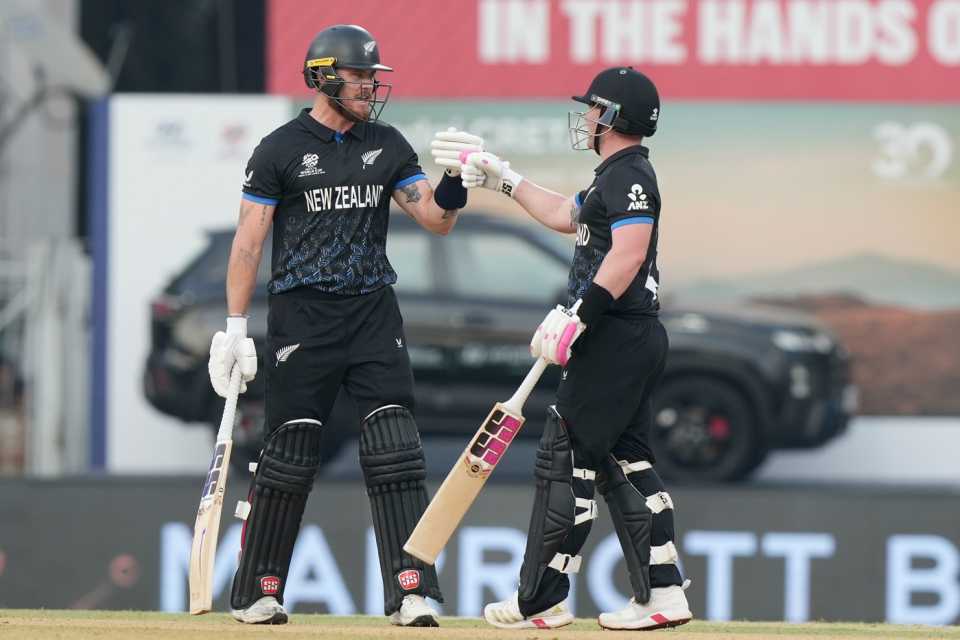
There was the odd hiccup or two. Glenn Phillips bowling the 18th over and giving up 27 runs. James Neesham turning a leg bye into an all-run four with an overthrow. But in the end, New Zealand wrapped up the win that was expected of them against UAE – with all ten wickets and 27 balls to spare – and look in good shape to make the Super Eights.
Finn Allen and Tim Seifert knocked off the entire target of 174 by themselves. In the course of doing that, they recorded the highest partnership for any wicket, by any side, in the T20 World Cup.
An even-paced pitch and its location on the square – making one side of the ground smaller than the other – resulted in the batters really enjoying themselves.
Muhammad Waseem and Alishan Sharafu are the most accomplished players in the UAE line-up and they stepped up – together – to put on a 107-run partnership. It is their second highest for the second wicket in T20Is.
The logic behind their strokeplay really stood out. Sharafu (55 off 47) backed away against Mitchell Santner and carved him over cover point for four. That shot was about getting the odds in his favour – hitting with the turn and to the short boundary. Waseem (66 off 45) backed his upper cut off Matt Henry’s slower bouncer because short third was inside the circle. It was high-percentage cricket in a high-pressure situation.ll
New Zealand’s bowlers had a really tough time against India in the bilateral series leading up to this World Cup. Huffing and puffing against UAE, who had crumbled to 81 all out in a warm-up game in Chennai against Italy, isn’t the kind of confidence boost they’re in need of
Phillips bowling in the death was odd. The four overs leading up to it had brought only 17 runs and two wickets. This one over alone yielded 27, including a wide, a no-ball four and a free-hit six. All while frontline quick Jacob Duffy had two overs left.
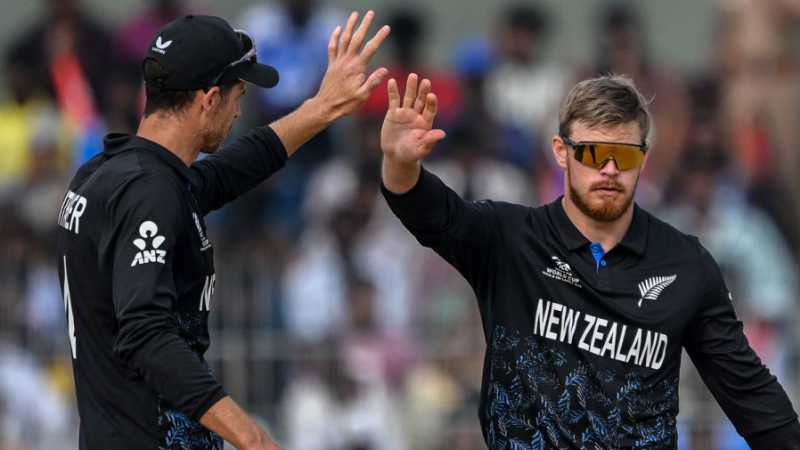
Alle and Seifert knocked off almost half the target in the powerplay itself. The 78 runs they put on together included nine fours and four sixes, which amount to a balls per boundary ratio of 2.77. This is a strength Santner had alluded to in the pre-match press conference ahead of the Afghanistan game, and it came good to take New Zealand to a 2-0 record in the group of death.
Allen showed game awareness when he played out UAE’s pinpoint accurate spin bowler, Haider Ali, and took down their quicks with ease instead. He had tried to do too much against Mujeeb Ur Rahman and lost his stumps during their previous match against Afghanistan. Here, even when Haider tempted him with mid-off up, he held back his big shots.
Seifert backed up his 39-ball fifty on Sunday with a 23-ball fifty today, continuing his path to becoming a high-volume batter instead of his previous version, where he was a high-variance batter. He didn’t have any trouble taking on Haider as the game neared its conclusion, reverse-hitting him for a six and then a four. New Zealand’s bash brothers were in full flow so the chase didn’t last beyond the 16th over.
Brief scores:
New Zealand 175 for 0 in 15.2 overs (Tim Seifert 89*, Finn Allen 84*) beat United Arab Emirates 173 for 6 in 20 overs (Mohamed Waseem 66, Alishan Sharafu 55, Mayanak Kumar 21; Matt Henry 2-37, Jacob Duffy 1-16, Lockie Ferguson 1-35, Mitchell Santner 1-23, Glenn Phillips 1-30) by ten wickets
(Cricinfo)
Latest News
Wanindu Hasaranga ruled out of T20 World Cup with injury
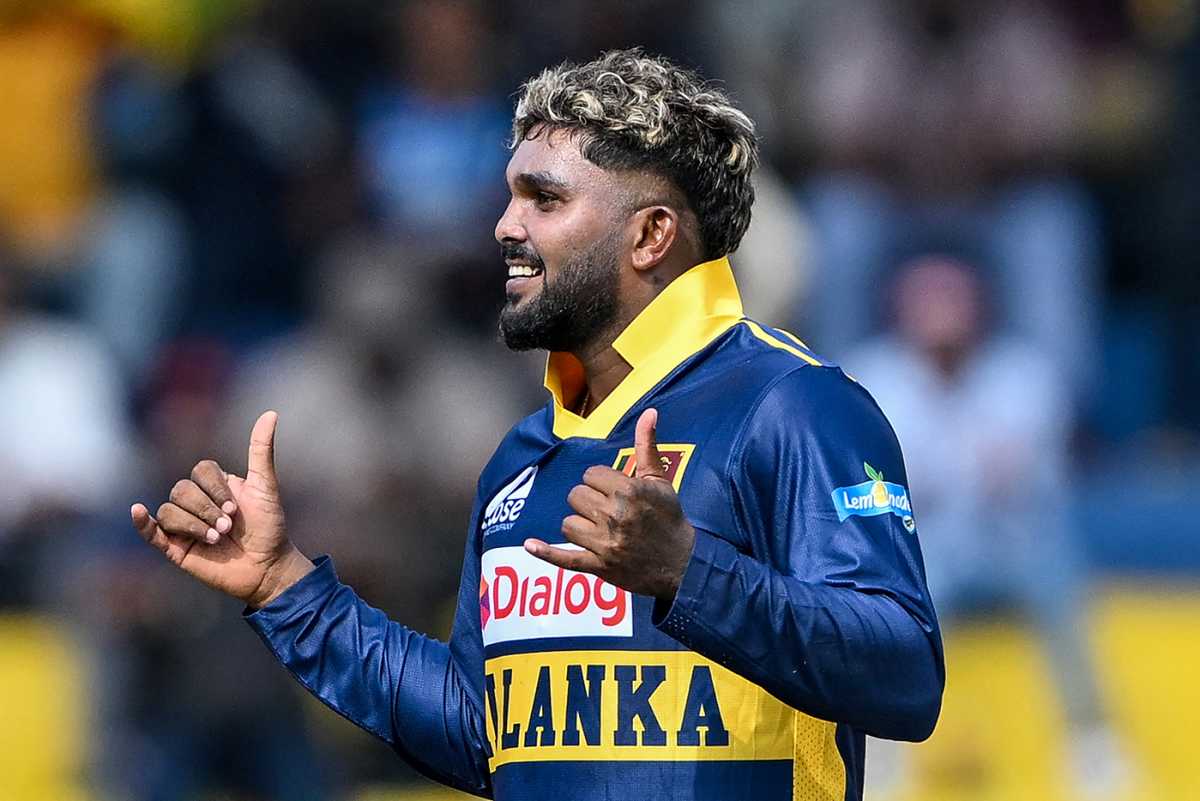
Sri Lanka allrounder Wanidu Hasaranga has been ruled out of the 2026 T20 World Cup with a hamstring injury he suffered during their opening game aga8nst Ireland in Colombo on Sunday.
Although he completed his spell, taking 3 for 25 in four overs to derail Ireland’s spirited chase of 164, Hasaranga had an MRI scan on Monday that revealed a serious tear in his left hamstring. The report was seen by a specialist in the UK before he was ruled out on Tuesday.
The tear is understood to be related to a previous hamstring injury, though it is not a recurrence exactly. Hasaranga has battled injury for several years now, including a foot complaint
The ICC is yet to approve a replacement but Hasaranga is likely to be replaced in the squad by fellow legspin-bowling allrounder Dushan Hemantha. Although Hemantha, 31, brings roughly the same skillset, he has had only sporadic opportunities at the top level. He has played three T20Is, and has taken four wickets in those matches, with an economy rate of 7.85. Sri Lanka may also drop him straight into the XI – aside from the spinners who played on Sunday, there are no spinners in reserve in the squad.
Hasaranga’s loss is a substantial blow to Sri Lanka’s campaign nevertheless. He is the team’s most accomplished bowler in this format, and has been outstanding with the ball at T20 World Cups, taking 40 wickets and maintaining an economy rate of 6.01 across 20 innings.
Sri Lanka’s second group game is against Oman on February 12 in Pallekele, followed by Australia on February 16 in Pallekele, and finally Zimbabwe in Colombo (RPS) on February 19.
(Cricinfo)
Latest News
Royal Navy of Oman Vessel “SADH” arrives at Port of Colombo
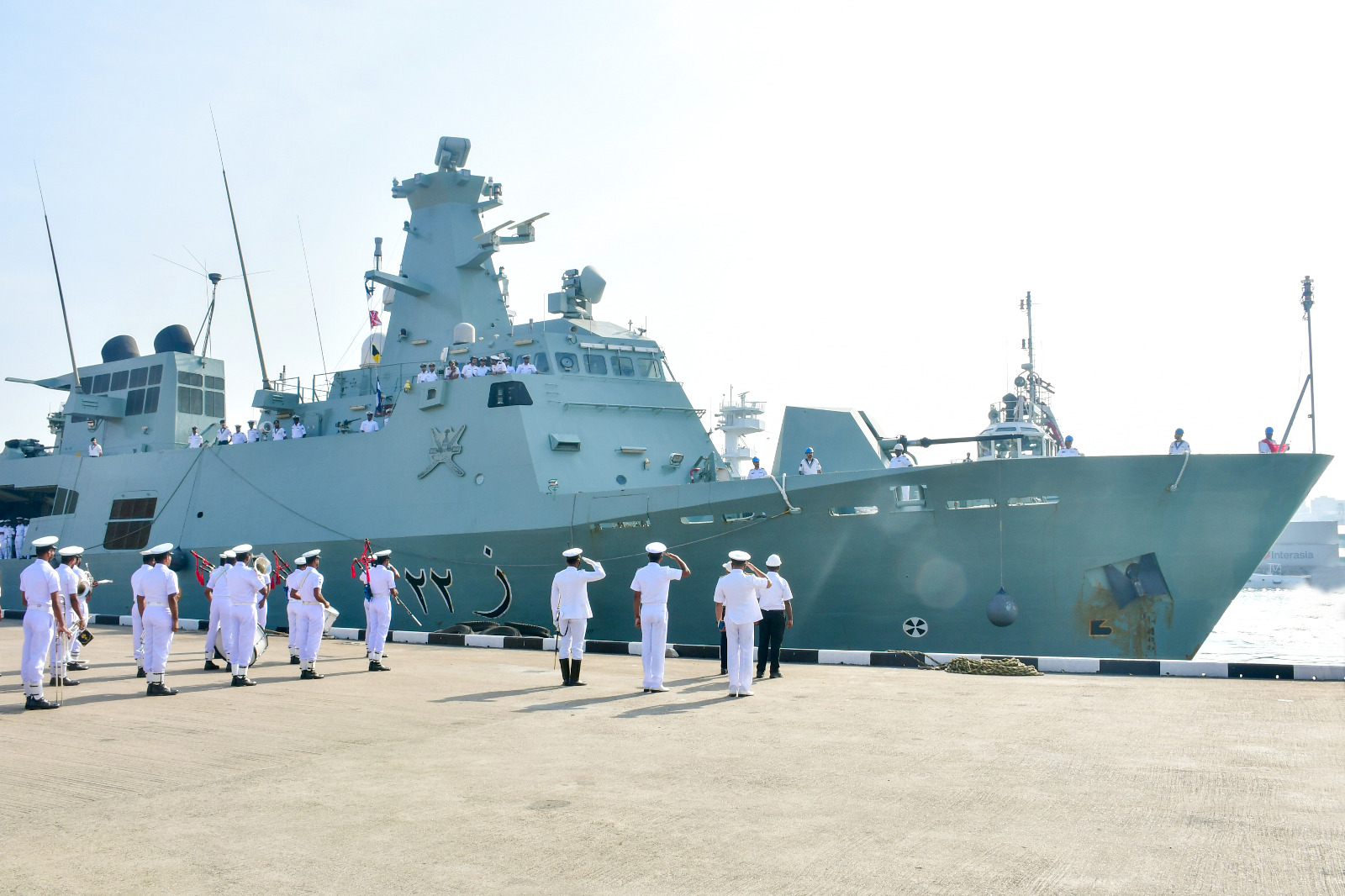
The Royal Navy of Oman Vessel “SADH” arrived at the Port of Colombo on a logistics replenishment visit on Tuesday (10 Feb 26). The Sri Lanka Navy welcomed the visiting ship in
compliance with naval traditions.
The 75m – long ship is commanded by Lieutenant Commander Shaheen Saud Abdul Rahman AI Balushi.
The port call will facilitate professional interaction and goodwill exchanges between the two navies.
During the stay in Colombo, crew members of the ship are expected to visit some tourist attractions in the city of Colombo.
-

 Features3 days ago
Features3 days agoMy experience in turning around the Merchant Bank of Sri Lanka (MBSL) – Episode 3
-

 Business4 days ago
Business4 days agoZone24x7 enters 2026 with strong momentum, reinforcing its role as an enterprise AI and automation partner
-

 Business3 days ago
Business3 days agoRemotely conducted Business Forum in Paris attracts reputed French companies
-

 Business3 days ago
Business3 days agoFour runs, a thousand dreams: How a small-town school bowled its way into the record books
-

 Business3 days ago
Business3 days agoComBank and Hayleys Mobility redefine sustainable mobility with flexible leasing solutions
-

 Business4 days ago
Business4 days agoHNB recognized among Top 10 Best Employers of 2025 at the EFC National Best Employer Awards
-

 Editorial6 days ago
Editorial6 days agoAll’s not well that ends well?
-

 Business4 days ago
Business4 days agoGREAT 2025–2030: Sri Lanka’s Green ambition meets a grid reality check


